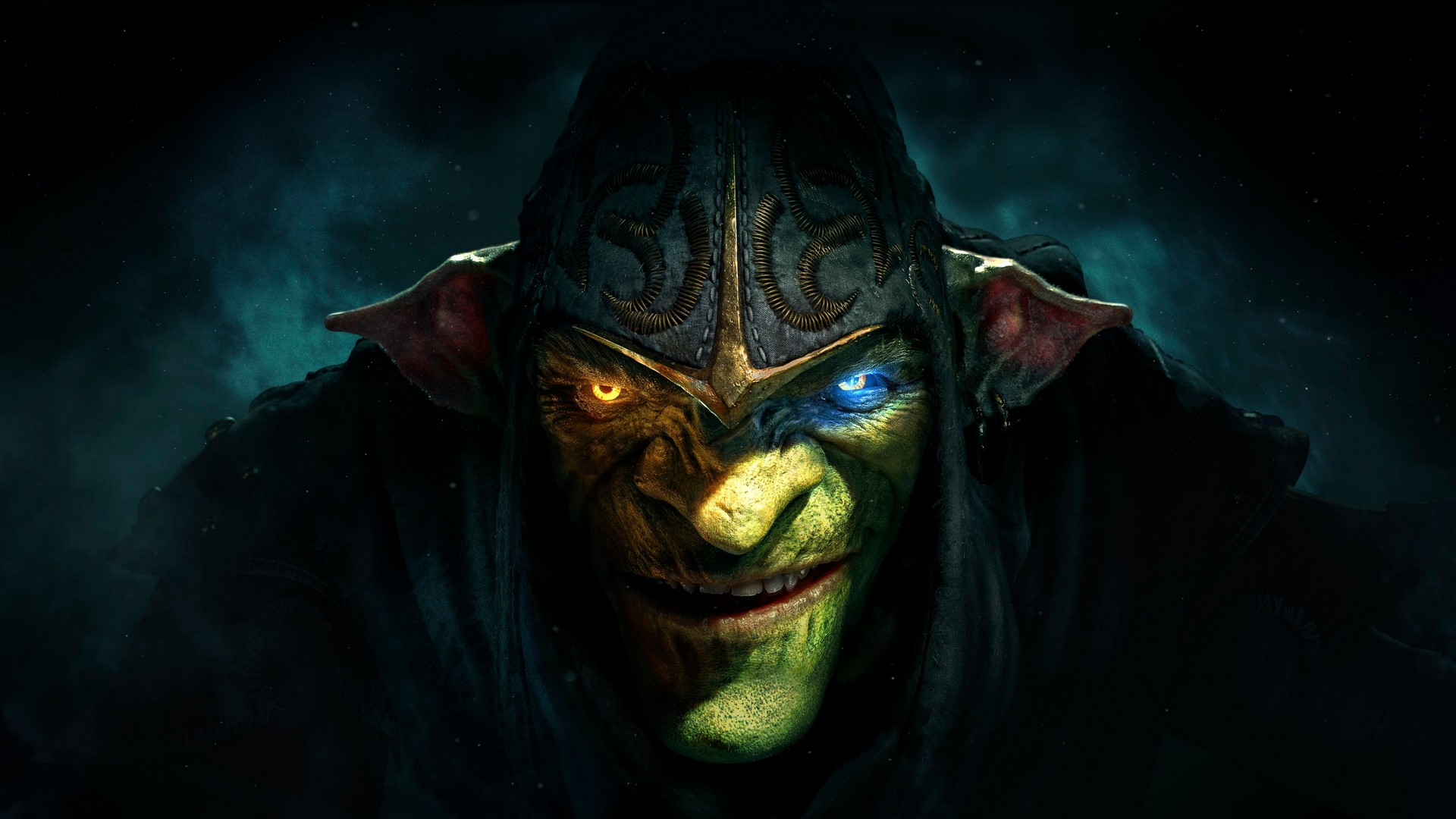John C. Reilly On His Own Films
Wreck-It Ralph star talks Scorsese, Malick, Boogie Nights and more...
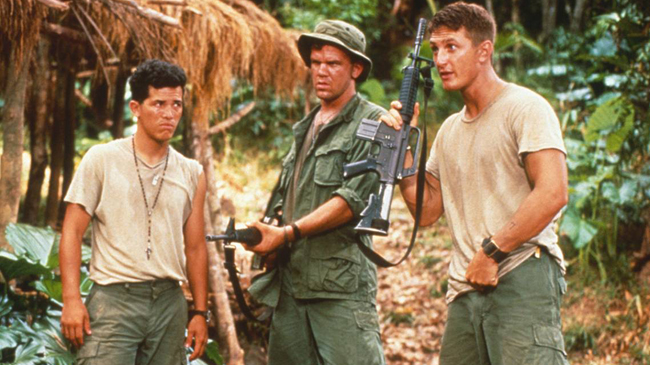
Casualties Of War
I was in Chicago, just starting out, just out of acting school, and I made a video tape. I was cast originally just as a day player, just in one scene.
Then I got over there and there were some casting changes made.
It’s funny because the experience I had on that movie and the next movie I did, which was We’re No Angels , people got fired on those movies. Actors got fired on those movies (chuckles).
It’s pretty rare, and after you’ve started filming it’s very rare. But on those films actors got fired after we started filming.
On Casualties of War I ended up changing roles twice because of that rearranging, so it gave me a sense of ‘Nothing is set in stone’ because anything can change at any moment.
Even to this day, even though I said it’s a rare thing, I just feel like ‘Don’t take this for granted, they can change their minds tomorrow’.
Casualties Of War was my first aeroplane ride, it was my first time in front of a camera. I just remember getting there and arriving at this hotel in Thailand, in Phuket, and it was very surreal, the first time I got there.
I was jet-lagged, I’d been taking these Malaria pills, which make you hallucinate when you dream. So I got there and I got a beer from the minibar and walked out to the beach and sat down in the sand. There was one other Caucasian person on the beach. I turned, and it’s Michael J Fox.
It was just such a surreal moment of my life, to come from not having any exposure because even when I was cast in that film, I wasn’t.
I’d never met the director or anything, I didn’t go to Los Angeles, I just made a video tape and some agent’s office and they sent it along and then all of a sudden I was launched into this crazy experience.
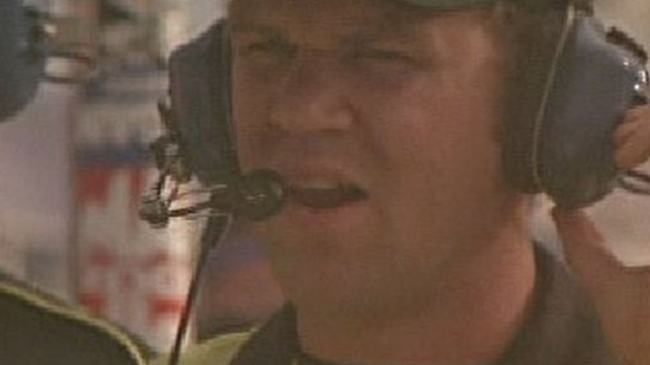
Days Of Thunder
I was most interested in doing that movie because Robert Duvall was in it. I spent a lot of time with Robert Duvall and he kind of took me under his wing.
First of all, I didn’t know anything about race-car driving, I mean it’s become somewhat of a popular sport around America now but at that point it was considered kind of a redneck sport and I didn’t know much about it.
It was the first of a few things I did with Tom Cruise in it over the years. That was at the height of the kind of [ Don ] Simpson and [ Jerry ] Bruckheimer Hollywood blockbuster kind of movies.
This was when they were at the zenith of their power.
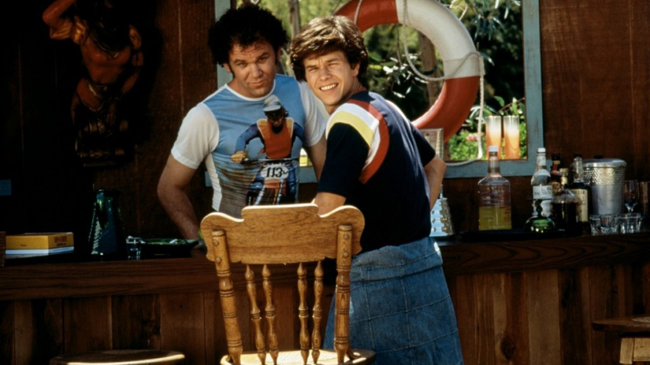
Boogie Nights
Paul Anderson and I were really good friends already by the time he wrote that script.
We’d already made Hard Eight , or Sydney as it was really called, and he already had the Boogie Nights script. He was trying to get it made, but everyone was so freaked out about the nudity and the porn aspect of it.
Which seems really strange, it was the mid-'90s, why were people so uptight?
Now producers are begging for scripts about porn, there’s been so many movies made about the underside of that world.
Boogie Nights was a really great experience because it felt like we were getting away with making this crazy story, it was almost like we are getting it made before the studio realises what they’ve letting us do.
A lot of the actors weren’t as well known at the point.
Julianne Moore was known a little bit, Bill [ William H. ] Macy, a little bit, but Phil [ Seymour Hoffman ] and I were not really recognisable by anybody.
Mark Wahlberg hadn’t done many movies before that, so it was this kind of great, fertile, hilarious summer, where it felt like a block party that went on for three months.
Even in the dark scenes, there was a lot of humour on the set and a lot of improv. It was probably one of the funnest films I’ve done.
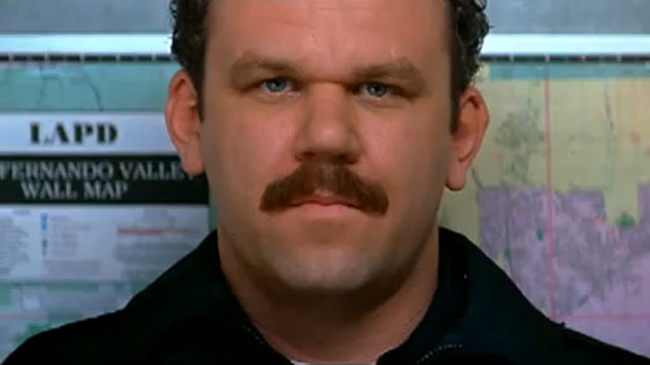
Magnolia
Compared to Boogie Nights , the subject matter was much more emotional and tense and all of us had gone through stuff, losing family members and I think it was reflected in the work there.
Although, a lot of the basis for who my character was, came from these video tapes we made while Paul was trying to get Boogie Nights put together.
We would drive around and I would pretend that I was a policeman because we were obsessed with that show Cops , which was brand new then.
We did our own version of Cops and the stuff that I said in those video tapes became the basis for the character in Magnolia .
Me and Paul made it a little more serious and added this romantic element to it with my character’s involvement with Melora Walters’s character.
I always get a headache the first time I’m watching a movie I’m in, and then I’m just staring really hard at the screen trying to remember, like ‘This happened…’ it seems like a scrapbook of your life, but out of order because usually things are not filmed in order.
Everything feels like all jumbled up and it takes one or two viewings to even get any kind of objective take on it.
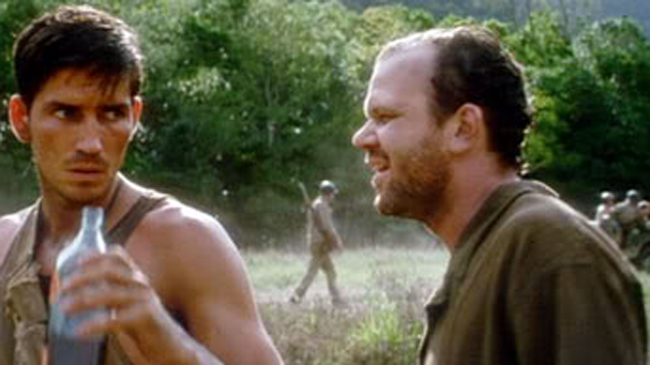
The Thin Red Line
Malick is an amazing artist. I felt like he was the least like a film person. In some ways Terrence seems like a philosopher or something. He’s working in the film world, but he has a very un-traditional way of working.
It seems like he’s almost like a documentary point of view as a director, going around searching each day for something that seems true or that seems real or something that’s so visually beautiful that it’s transcendent.
So he goes around and just collects all these things. The producers and the money people are going around saying, ‘This is the script and this is what we’re shooting today, right Terry?’ and he has this whole other agenda, so he’s writing scenes on the fly and getting shots of extras crying, getting shots of birds and trees and looking everywhere, looking for the truth.
Then he goes back to the editing room and looks through the basket like, 'What did I find out there?'
Regardless of what the script says or what the plan was. I think that takes a really brave person to do that.
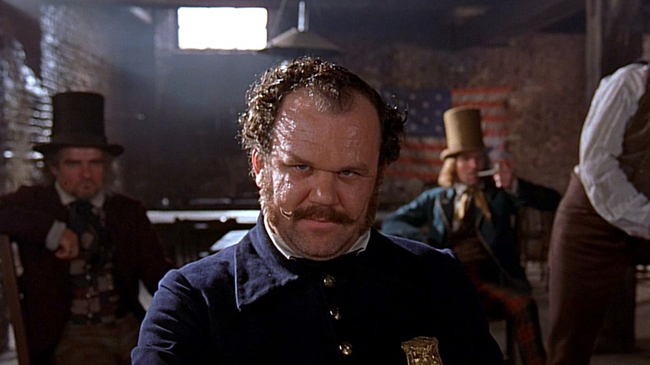
Gangs Of New York
How did I feel when I stepped onto the set? That was amazing, I mean the craftsmanship among those people in Italy was really, really inspiring.
Not just the sets, everything was complete. I mean not only did it look real on the outside, but you’d walk into anyone of those storefronts with those buildings and there’d be things for that shop in there.
So the reality was very complete. And then all the costumes, the leather-working, it was like getting to go back to the early days of Hollywood, when craftspeople were the backbone of the whole machine, you know, like teams of people doing hand-created work.
It just seems a lot more artificial now, the sets in California anyway, and in some ways that was kind of a throwback with the way films used to be made.
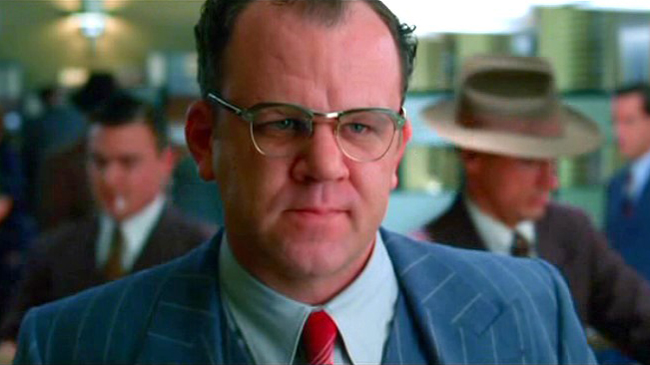
The Aviator
Martin Scorsese is an Italian-American guy and the stories that probably seem most Scorsese-like to audiences are like Goodfellas and, you know, those kind of stories that involve the Italian-American story in America.
But I love how Martin Scorsese makes every movie he does seem personal to him, whether it’s Shutter Island or Gangs Of New York , or Aviator .
What does a kid from little Italy and New York have in common with Howard Hughes?
Maybe you wouldn’t think at first that there’s a lot there, but in fact when I watch that movie I think it’s told from a very personal point of view.
I think out of all the people that I’ve worked with, Scorsese has the most deliberate control of the elements of filmmaking.
It’s like watching someone who knows like a painter, ‘If I put blue in this painting right here it’s going to make the viewer feel this particular way.’
It’s so deliberate, he’s such a fanatical student of film that he understands the vocabulary of the movement of the camera, the shot composition, all of it, you know, references to other films, it’s so complete.
I found myself writing down little notes and titles of films he’d rattle off when we’d be talking about stuff.
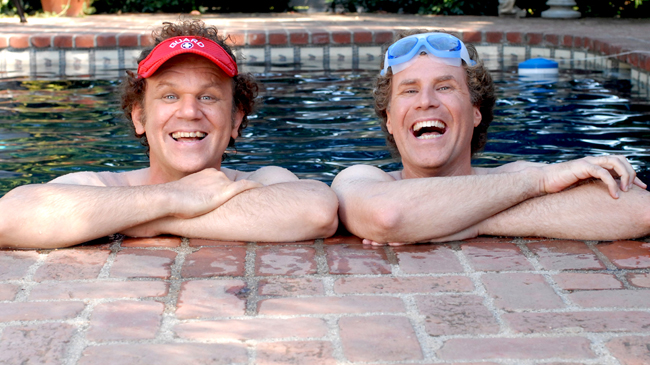
Step Brothers
We laughed all the time when we were making Step Brothers .
But even though it’s ridiculous, over the top, and very broad comedy, it was a very personal project for me too because a lot of those stories were from my own childhood.
I wrote that script with Will [ Ferrell ] and Adam [ McKay ], so it ended up feeling like a really personal project to me.
You know, I don’t want to incriminate anyone but certain things happened with drum sets in the household, growing up…
It really felt like a satisfying and fulfilling film to make because I got to participate so much in the creation of it.
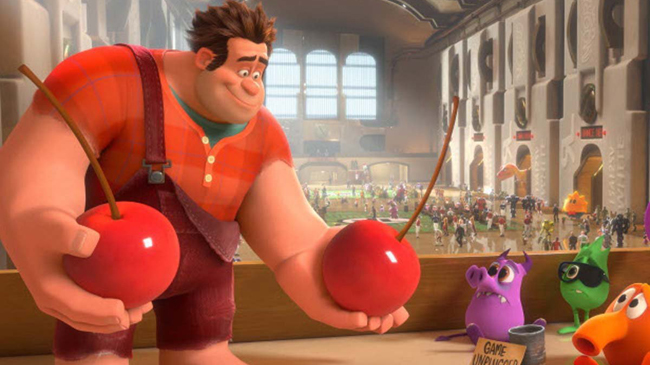
Wreck-It Ralph
The first challenge of making an animated film is to make it not sound like you’re reading.
Because it’s very easy, you just kind of go in and stand there with the script in front of you, you know they’re filming you for the animators as a reference guide. That’s the first thing: just make it seem really fresh.
But I wasn’t so focused on the challenges of it as I was focused on the great liberties you could take and how much freedom we had and how much time we had.
Everyday we had more time than we needed in the recording studio and the animators were always trying to catch up to us, it was never the other way around.
So there was just a lot of time to try different ideas.
No-one was ever tapping their watch or saying, ‘The sun is going down’ or whatever.
I could grow a crazy moustache in the middle of the process and it didn’t matter, the director was not upset by that as long as I didn’t let it brush the microphone.
I mean, I really loved the process that we, at least the way that Rich Moore [ director ] did it on this.
I don’t know if I’d be too keen to do one of those films where you’re just locked in a phone booth recording just your dialogue and reacting to things you hear in your headset from the other actors.
I really liked the collaborative way we did the recording on this one.
Wreck-It Ralph opens in UK cinemas on 8 February 2013.
Sam Ashurst is a London-based film maker, journalist, and podcast host. He's the director of Frankenstein's Creature, A Little More Flesh + A Little More Flesh 2, and co-hosts the Arrow Podcast. His words have appeared on HuffPost, MSN, The Independent, Yahoo, Cosmopolitan, and many more, as well as of course for us here at GamesRadar+.
Weekly digests, tales from the communities you love, and more
You are now subscribed
Your newsletter sign-up was successful
Want to add more newsletters?

Every Friday
GamesRadar+
Your weekly update on everything you could ever want to know about the games you already love, games we know you're going to love in the near future, and tales from the communities that surround them.

Every Thursday
GTA 6 O'clock
Our special GTA 6 newsletter, with breaking news, insider info, and rumor analysis from the award-winning GTA 6 O'clock experts.

Every Friday
Knowledge
From the creators of Edge: A weekly videogame industry newsletter with analysis from expert writers, guidance from professionals, and insight into what's on the horizon.

Every Thursday
The Setup
Hardware nerds unite, sign up to our free tech newsletter for a weekly digest of the hottest new tech, the latest gadgets on the test bench, and much more.

Every Wednesday
Switch 2 Spotlight
Sign up to our new Switch 2 newsletter, where we bring you the latest talking points on Nintendo's new console each week, bring you up to date on the news, and recommend what games to play.

Every Saturday
The Watchlist
Subscribe for a weekly digest of the movie and TV news that matters, direct to your inbox. From first-look trailers, interviews, reviews and explainers, we've got you covered.

Once a month
SFX
Get sneak previews, exclusive competitions and details of special events each month!
